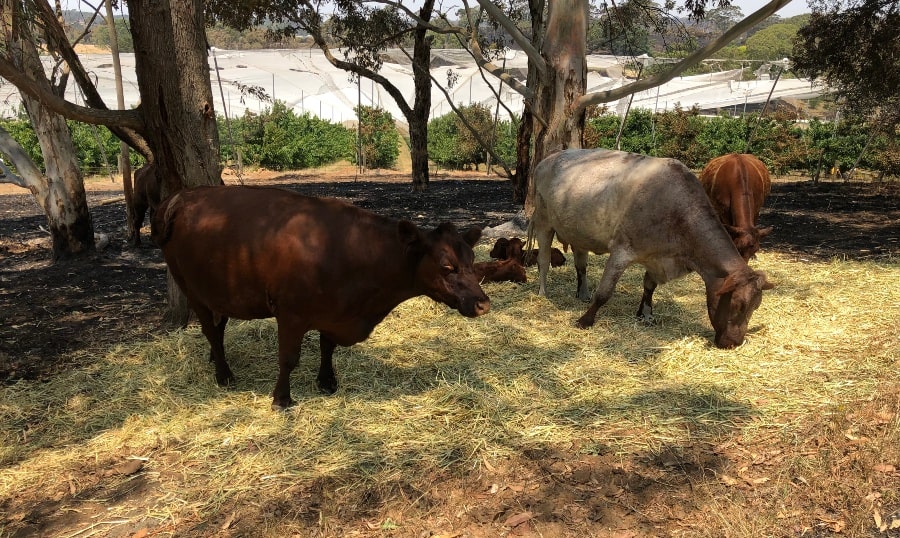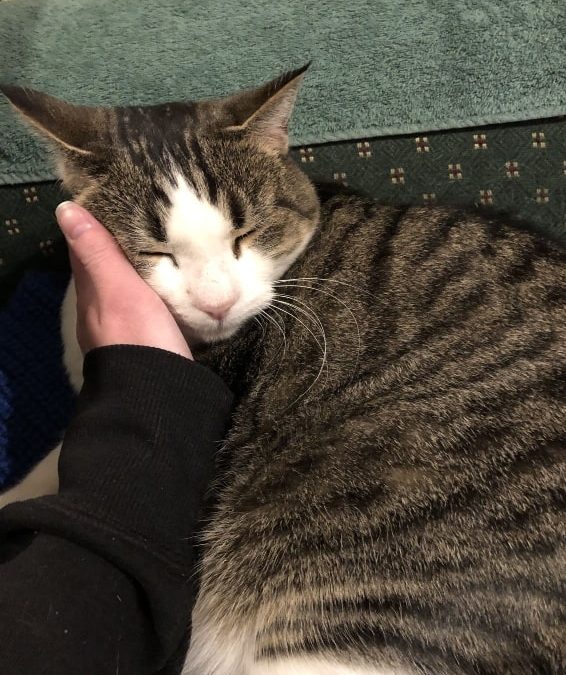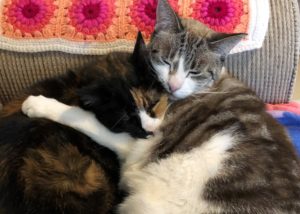In a nutshell, I see veganism as a being kind to animals lifestyle. That’s it.
When I transitioned to a vegan diet and lifestyle at the end of 2021 (just before Christmas! You can find out more here: Veganuary: For The Love Of Animals), there were a lot of things I was prepared for from other people both in my life and in the online sphere. But there were some things that took me by surprise and I definitely was not prepared for or expecting.
If you’re in the process of transitioning to veganism or newly vegan, here are five things that I was prepared for and five things that I wasn’t prepared for in my personal experience that may help you.
To Be Expected:
1) “Where are you going to get your protein/calcium/iron/B12/folate/magnesium/zinc from?!”
Aha, good thing I was expecting this one because I made a list!
It was a little overwhelming, so the way I approached this was to list out all the nutrients above, prioritising the ones most commonly asked about in relation to veganism. I then tackled one each day and researched how much I needed as a woman of my age, listed where I could get said source, as well as what to eat that would help absorption etc. to tell people who asked out of genuine concern for my wellbeing.
I did my research and it wasn’t that hard when broken down into steps. I feel as though I’m healthier now being vegan than I was before, having taken responsibility to look into exactly where I’m personally getting my nutrition from.
2) “Veganism? But what will you eat?!”
Uh… vegetables, fruits, nuts, seeds, tofu, grains, legumes, and a whole lot of vegan junk food?
Although health wasn’t my goal for going vegan (I’m vegan for the animals and the environment which means, hello vegan junk food, in moderation of course… mostly), doing the above nutrition research made it really easy to answer this question.
I also looked into vegan substitutes, and oftentimes when I bake things or cook things veganised (like using almond milk instead of cow’s milk because I’m not a baby cow), you’d be really hard-pressed to know it was vegan.
In short, everything is on the table except things made with animal body parts or their excretions. Original Oreos are vegan, who knew?
3) Judgement (both ways)
Being as vegan as I can be for me is not about defending an ideology or way of life, but about being kind to the animals and not acting in ways that leads to their suffering, and thinking about my impact on the planet and minimising it.
When I receive judgement for the way I’m doing things, I get it. I don’t take it personally, but understand that the other person is going through some stuff that has nothing to do with me and my decisions.
It would behove us to understand where other people’s judgement comes from; people are reacting to something that isn’t familiar or mainstream. A lot of judgemental responses to any sort of change or difference is coming from cultural conditioning of what is considered ‘normal’ as people tend to want to defend the status quo and what they see as their “way of life.” The person who seems to judge you is acting from a place of conditioning and may be feeling unsettled by having to question their way of life and update their mental software about you and what you’re doing now. This causes friction in the person, and I think judgement about veganism is just an outward manifestation of that inward friction.
It’s not on you, so stand firm on your values and remain stable in what you believe is right no matter what judgement is thrown at you.
People also tend to be worried that I’m judging them as well. I hear things like, “I could never go vegan but I’m trying to be more vegetarian,” in a way that’s, dare I say it, sheepish.
It’s as though the person I’m speaking to is worried that I’m judging their lifestyle choices (and sometimes that’s where the tensions and judgement from other people come from, an unconscious motivator of “I’m being judged (attacked) and I don’t like it so I’m going to go on the pre-emptive defence attack”). I’m not.
What looks like judgement is just my enthusiasm at the prospect that others may be interested in a lifestyle that doesn’t harm animals unnecessarily, and then my disappointment when I realise that people would rather question me about where I’m getting my protein from and focus anywhere but the animals being harmed, rather than join me or think that what I’m doing for the animals is great and all power to me.
When people are aware that animals suffer because of a lifestyle choice and prefer to ignore it or think that’s okay, I’m not judgy, just upset and disappointed.
4) “But you used to love eating lamb chops!”
I was sort of prepared for this one because when I went vegetarian in late high school, I was reminded how much I used to love lamb chops as a kid. I used to love my aunt’s cauliflower cheese a couple of years ago as well (and I still can with the wonders of vegan cheese! We can enjoy food without an animal suffering as a result). The thing about that is I also used to like rusk sticks while I was teething. We evolve and grow and mature with different needs.
As I’ve learned and become educated, I’ve made some changes, and I realise that not everyone is going to get on board with that.
Don’t let people derail you just because they have some discomfort about your change. Stick with your veganism and remember why you’re doing this. In my case, it’s for the animals. Never am I going to eat a lamb chop again knowing what I know now, nor am I going to start chowing down on rusk sticks now that my adult teeth are in place.
5) “Veganism is a bit extreme though, isn’t it?”
Honestly, if choosing not to eat dead animals, their body parts and excretions, or not pay for them to be slaughtered en masse with suffering no matter how “humane” people want us to think it is, is extreme, I think we have some work to do as a culture and society.

I Wasn’t Expecting That…
1) “You’re not supporting our Aussie farmers when they’re doing it tough, shame on you vegans!”
This is one that’s used by the media a lot. When a damn vegan comes along and decides, heaven forbid, to not pay someone to abuse animals in the name of animal agriculture and ‘food’, they’re awful people. Can we take a moment to recognise the real victims in this situation please?
The thing is, I do support Aussie farmers. I probably support more Aussie farmers than someone who eats meat. I support oat farmers, almond farmers, strawberry farmers, apple farmers, cherry farmers, blueberry farmers, pumpkin farmers, many many fruit and vegetable farmers the list goes on for days.
So I actually do support Aussie farmers as a vegan. Just not the farmers who I think are making money and “a living” in wrong and morally reprehensible ways.
It may not make me popular, but like I keep saying, this decision and veganism is all about being kind to the animals.
2) Developing Secondary Traumatic Stress
I tried watching Earthlings after going vegan and watching a lot of Earthling Ed discussions and talks. Two minutes in I was sobbing my heart out to the point of nearly being sick because what humans did and still do to animals was so awful to witness. After 20 minutes I stopped because I just couldn’t watch it.
As a fledgling vegan I felt it was my duty to be aware of the awful things that happened to animals to get educated. This made sense in theory and for someone who is on the fence about veganism or not already a vegan I’d say look at what happens to be informed about where your ‘food’ is coming from and then decide.
But for someone already vegan who has no intention of eating animals or their products, I’d say you’re doing enough. There’s no need to watch that.
I wish I’d known that I could be a vegan without subjecting myself to watching the horrors that animals endure, and that by not watching these things that it wouldn’t make me less of a vegan or not doing my part for the animals.
But I didn’t. And I got traumatised and dealt with the effects of what I now know to be second hand trauma or Secondary Traumatic Stress where I wasn’t in the situation myself, but watching on being unable to do anything to stop a situation from unfolding.
This mental and emotional upheaval (stay tuned for a blog post where I’ll discuss secondary traumatic stress about animal suffering) doesn’t do me any good and it doesn’t do the animals any good. It made me a less effective advocate for the animals because I was empathically suffering for them and with them.
Dr Melanie Joy, who coined the term “carnism” to describe eating meat, has some very useful insights about effective animal advocacy and communication.
Now that I’m mindful about what I watch, I’m still experiencing some second-hand trauma from what I’ve seen and continue to see from well-meaning vegans who want non-vegans to make informed choices, and people who don’t put warnings on their content that includes disturbing visuals.
I’m doing better these days but still have trouble. All that for another blog post.
3) “But plants feel pain!”
Must we go there? Really? Of all the important conversations that we could have regarding the vegan lifestyle, you’re really going to just ignore the whole animal suffering component and environmental impact situation, and discuss plants feeling pain (often based on some cherry-picked components of ‘scientific studies’ that the media has latched onto)?
I hate to break this to them, but if they realised how many plants it took to feed the animals they’re eating, they’d be heartbroken.
Anyway, as far as I’m aware and I’ll need to fact check this, plants react, they don’t respond. Animals react and respond, because they have a nervous system and awareness. They feel fear, they feel pain, they suffer. Plants do not have a nervous system and awareness, so to say that they “feel pain” is false. They react to stimuli. That’s it.
4) “For every steak a vegan doesn’t eat, I’m going to eat two so vegans aren’t making a difference.”
To these people I would say: Firstly, that’s needless aggression and why are you so threatened by our lifestyle choices?
Secondly, if I don’t eat a steak, I’m eating zero steaks.
So if you’re going to eat 2 for every 0 that I eat, then 2 x 0 = 0.
Are you sure you’re getting enough omegas in your diet for brain functioning?
5) “Veganism is just a cover up for a restrictive eating disorder/ you’re food shaming!”
For starters, as a vegan I’m not food shaming anyone because to me, animals and their products aren’t human food. Cows are cows, not food. Lambs are cute, not food. Cats are lovely, not food. Pigs and chickens are intelligent, not food. All are sentient beings, not food.
On to the second point, I know that I have an interesting relationship with food. And I have for some time as a newly realised neurodivergent person.
It was difficult for me initially for people to think that being vegan was just me covering up an eating disorder or restrictive eating or ‘being concerned’ about me. But then I remembered who I was doing it for, and I didn’t give a fuck. The people who matter know what’s what, everyone else can think what they like, and sheep may safely graze.
Final Thoughts
As a bonus point, I didn’t expect others to not care as deeply as I did about the animals. This was tricky for me, but I always bring it back to the animals.
As someone said to me, ‘For every person who’s vegan, it’s a win for the animals.’
Veganism can be lonely sometimes, so you’re warmly invited to sign up to the email newsletter below to join The Quiet and Curious folk community and receive bonus goodies and content from me:
Keep being kind to the animals. You’re doing great.
Love,




